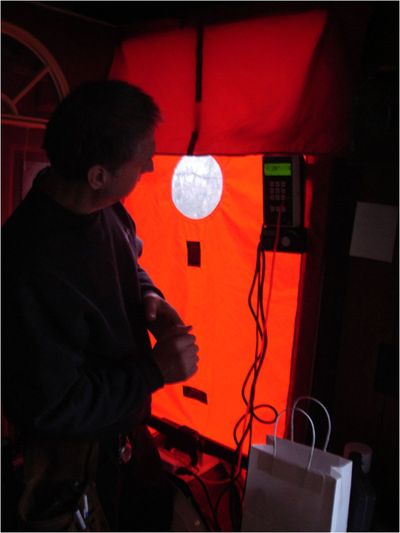Where Are the Green-Collar Jobs?

What is a “green-collar” job? “A green-collar job is, in essence, a blue-collar job that has been upgraded to address the environmental challenges of our country,” according to Lucy Blake of the Apollo Alliance, which is helping to transition the economy from fossil fuels to renewable energy.
Green-collar jobs that are generated by encouraging energy efficiency include home energy auditors, insulation installers, weatherization workers, retrofitters for buildings, and installers of solar electricity and solar hot water systems. Other green-collar workers are brewing biofuels, building hybrid cars, and erecting giant wind turbines. Labor unions view these new jobs as replacements for positions lost to overseas manufacturing and outsourcing. Urban groups view training in green jobs as a route out of poverty. And environmentalists say they are crucial to combating climate change. Obama considers them part of the economic stimulus plan.
According to Van Jones — who is the founder of the Ella Baker Center for Human Rights and of the Oakland (Calif.) Apollo Alliance and who also is an adviser to President Barack Obama for green jobs — green-collar jobs are manual-labor jobs that can’t be outsourced.
“You can’t take a building you want to weatherize, put it on a ship to China and then have them do it and send it back,” Jones said in a recent New York Times interview. “So we are going to have to put people to work in this country — weatherizing millions of buildings, putting up solar panels, constructing wind farms. Those green-collar jobs can provide a pathway out of poverty for someone who has not gone to college.”
Many people have been laid off or have lost jobs in the recent economic downturn. Young people coming out of college are facing a challenging job market. Some of these people are opting for entry-level green jobs — such as a $12-an-hour job weatherizing senior housing, which has the potential to grow to a $40-an-hour job as a certified home energy auditor. You could start at $18 an hour working as a solar technician and work your way up to $50 an hour as a certified solar installer, as another example.
“If we can get these youth in on the ground floor of the solar industry now, where they can be installers today, they’ll become managers in five years and owners in 10. And then they become inventors,” Jones said to the Times. “The green economy has the power to deliver new sources of work, wealth and health to low-income people — while honoring the Earth. If you can do that, you just wiped out a whole bunch of problems.”
Meanwhile, job training for millions of green-collar jobs has to happen right away. Infrastructure needs to be set up for training, and funding for that has to come from somewhere. Funds could come from taxes on global warming pollution or from revenues from a cap and auction system, in which heavy polluters buy pollution rights and the money is used to fund green-job training centers.
Jones’ Oakland Apollo Alliance helped to raise $250,000 from the city government to create a union-supported training program that will teach young people in Oakland how to put up solar panels and weatherize buildings. Jones is partnering nationally with other environmental activists, such as Majora Carter from Sustainable South Bronx in New York, for congressional support of $125 million — far less than most corporate bailouts — to train 30,000 young people a year in green trades. “The green economy needs Ph.D.s and Ph.-do’s,” says Jones to our nation’s youth. “You can make more money if you put down that handgun and pick up a caulk gun!”
Here’s what you can do:
—Ask Congress to support a “carbon tax” and “cap and auction” system to make big polluters fund our transition away from fossil fuels. (Go to http://www.1Sky.org.)
—Ask your town board to mandate Energy Star guidelines in the building code to encourage energy efficiency.
—Create a national Clean Energy Corps — expanding national service opportunities within AmeriCorps, Senior Corps and Learn and Serve America — to combat climate change. (Go to http://www.GreenForAll.org.)
Shawn Dell Joyce is an award-winning sustainable activist and director of the Wallkill River School in Orange County, N.Y. You can contact her at Shawn@ShawnDellJoyce.com. To find out more about Shawn Dell Joyce and read features by other Creators Syndicate writers and cartoonists, visit the Creators Syndicate Web page at www.creators.com.